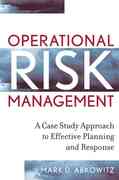5-59 Volume-Based Costing Versus ABC: Use the fi rm?s current costing system to calculate the unit cost of each product.
Volume-Based Costing Versus ABC ADA Pharmaceutical Company produces three drugs: Diomycin, Homycin, and Addolin belonging to the analgesic (pain-killer) family of medication. Since its inception four years ago, ADA has used a direct labor-hour-based system to assign manufacturing overhead costs to products. Eme Akpaffi ong, the president of ADA Enterprises, has just read about activity-based costing in a trade journal. With some curiosity and interest, she asked her fi nancial controller, Takedo Simon, to examine differences in product costs between the fi rm's current costing and activity-based costing systems. ADA has the following budget information for the year: Cost of direct materials Cost of direct labor Number of direct labor-hours Number of capsules Diomycin $205,000 $250,000 $7,200 1,000,000 Homycin $265,000 $234,000 $6,800 500,000 Addolin $258,000 $263,000 $2,000 300,000 ADA has identifi ed the following activities as cost drivers and has allocated them to total overhead cost of $200,000 as follows: Activity Machine setup Plant management Supervision of direct labor Quality inspection Expediting orders Total overhead Cost Driver Setup hours Workers Direct labor-hours Inspection-hours Customers served Budgeted Budgeted Cost Overhead Cost Driver Volume $16,000 $1,600 $36,000 $1,200 $46,000 $1,150 $50,400 $1,050 $51,600 $645 $200,000 Takedo selected the cost drivers with the following justifications: SETUP HOURS: The cost driver of setup hours is used because the same product takes about the same amount of setup time regardless of size of batch. For different products, however, the setup time varies. NUMBER OF WORKERS: Plant management includes plant maintenance and corresponding managerial duties that make production possible. This activity depends on the number of workers. The more workers involved, the higher the cost. SUPERVISION OF DIRECT LABOR: Supervisors spend their time supervising production. The amount of time they spend on each product is proportional to the direct labor hours worked. QUALITY INSPECTION: Inspection involves testing a number of units in a batch. The time varies for different products but is the same for all similar products. NUMBER OF CUSTOMERS SERVED: The need to expedite production increases as the number of customers served by the company increases. Thus, the number of customers served by ADA is a good measure of expediting production orders. Takedo gathered the following information about the cost driver volume for each product: Machine setups Plant management Supervision of direct labor Quality inspection Expediting production orders Diomycin 200 200 200 150 45 Homycin 600 400 300 200 100 Addolin 800 600 650 700 500 Required 1. Use the fi rm's current costing system to calculate the unit cost of each product. 2. Use the activity-based cost system to calculate the unit cost of each product. 3. The two cost systems provide different results; give several reasons for this. Why might these differences be strategically important to ADA Enterprises? How does ABC add to ADA's competitive advantage? 4. How and why may fi rms in the pharmaceutical industry use ABC? What is the strategic advantage? Volume-Based Costing Versus ABC ADA Pharmaceutical Company produces three drugs: Diomycin, Homycin, and Addolin belonging to the analgesic (pain-killer) family of medication. Since its inception four years ago, ADA has used a direct labor-hour-based system to assign manufacturing overhead costs to products. Eme Akpaffi ong, the president of ADA Enterprises, has just read about activity-based costing in a trade journal. With some curiosity and interest, she asked her fi nancial controller, Takedo Simon, to examine differences in product costs between the fi rm's current costing and activity-based costing systems. ADA has the following budget information for the year: Cost of direct materials Cost of direct labor Number of direct labor-hours Number of capsules Diomycin $205,000 $250,000 $7,200 1,000,000 Homycin $265,000 $234,000 $6,800 500,000 Addolin $258,000 $263,000 $2,000 300,000 ADA has identifi ed the following activities as cost drivers and has allocated them to total overhead cost of $200,000 as follows: Activity Machine setup Plant management Supervision of direct labor Quality inspection Expediting orders Total overhead Cost Driver Setup hours Workers Direct labor-hours Inspection-hours Customers served Budgeted Budgeted Cost Overhead Cost Driver Volume $16,000 $1,600 $36,000 $1,200 $46,000 $1,150 $50,400 $1,050 $51,600 $645 $200,000 Takedo selected the cost drivers with the following justifications: SETUP HOURS: The cost driver of setup hours is used because the same product takes about the same amount of setup time regardless of size of batch. For different products, however, the setup time varies. NUMBER OF WORKERS: Plant management includes plant maintenance and corresponding managerial duties that make production possible. This activity depends on the number of workers. The more workers involved, the higher the cost. SUPERVISION OF DIRECT LABOR: Supervisors spend their time supervising production. The amount of time they spend on each product is proportional to the direct labor hours worked. QUALITY INSPECTION: Inspection involves testing a number of units in a batch. The time varies for different products but is the same for all similar products. NUMBER OF CUSTOMERS SERVED: The need to expedite production increases as the number of customers served by the company increases. Thus, the number of customers served by ADA is a good measure of expediting production orders. Takedo gathered the following information about the cost driver volume for each product: Machine setups Plant management Supervision of direct labor Quality inspection Expediting production orders Diomycin 200 200 200 150 45 Homycin 600 400 300 200 100 Addolin 800 600 650 700 500 Required 1. Use the fi rm's current costing system to calculate the unit cost of each product. 2. Use the activity-based cost system to calculate the unit cost of each product. 3. The two cost systems provide different results; give several reasons for this. Why might these differences be strategically important to ADA Enterprises? How does ABC add to ADA's competitive advantage? 4. How and why may fi rms in the pharmaceutical industry use ABC? What is the strategic advantage







